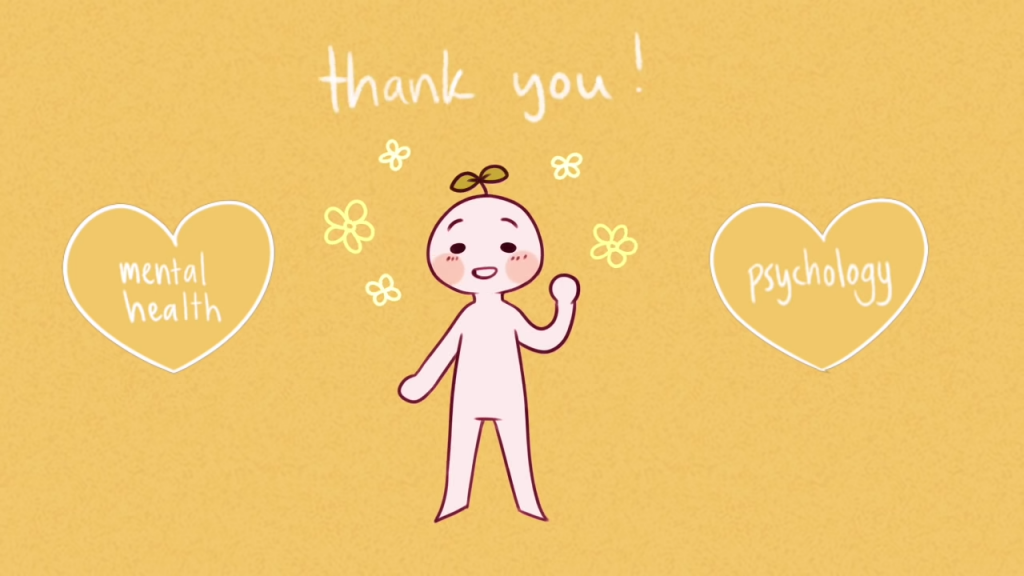Script and Article Writing – Guidelines & Tips

Hey everyone, here are some tips and guideline that I’ve compiled together to help you with your writing journey and let you know what’s expected from us 🙂

- Make sure to add sentences that are engaging to the audience, especially the intro.
- What are the things that would hook the viewers to watch the video longer?
- Try to make the tone friendly, reassuring, and expressive to connect with the audience.
- Add questions at the beginning of the intro, for example:
- Have you ever_____?
- Do you often_____?
- Do you find yourself doing_____?
- It has to be something that is relatable to them so that they listen to it and think: “Oh yes! That’s absolutely me! Go on… I want to listen to what you have to say next.”
- Next, be sure to include what is the goal of the article/ script. Explain why this is an important or interesting topic. Why should the audience care? What are the benefits of them knowing about this? Briefly talking about the goal of the script in the intro would make the audience more curious to learn more.
- PLEASE READ – IMPORTANT DISCLAIMERS & TIPS TO AVOID CONTROVERSY & BACKLASH:
We need to add appropriate disclaimers based on the topics we discuss. For example, if we talk about:- Mental illnesses/ personality disorders like “depression, anxiety disorders”, please add something along these lines:
This is a disclaimer that this article/video is for informative purposes only. It is not intended to diagnose or treat any condition. Please reach out to a qualified healthcare provider or mental health professional if you are struggling. - If we talk about something “Pseudo”, like Myer Briggs, personality tests:
The MBTI is a personality inventory designed to roughly identify a person’s personality type, split into 16 categories. As such, it may be prone to not quite hitting the mark for everyone: so take it as a list of rough tendencies rather than strict classifications. This video/article’s primary intention is for providing entertainment and light-hearted content backed up by properly-vetted professional sources. - If we talk about something more fun and entertaining like “mental age test” or “what your favorite emoji says about you”:
This article/video is made for entertainment purposes. So please don’t take it too seriously. - If we talk about personality disorders like NPD, ASD, Psychopaths, Sociopaths, please add this disclaimer:
This video is not made to attack anyone who may display these signs or anyone diagnosed with __ disorder, but rather to understand them and bring more awareness to the topic! - If we talk about topics that may make viewers feel bad about themselves (e.g. signs you’re manipulative or anything negative), let’s add this disclaimer:
If you can relate to any of these signs, please do not take this feedback as an attack on your character. This article was meant to be a self-improvement guide for those of you who have been feeling a little stuck. - If we are writing about something spiritual:
This video’s primary intention is for providing spiritual and light-hearted content and isn’t based on scientific research. - If we are talking about something based on our own opinions (e.g. life lessons, relationship advice), please add this disclaimer:
This video is for educational purposes and is based on personal opinions. This video is not a substitute for professional advice, but general guidance. We advise you to always listen to your intuition and always do what is right for you. - If we are giving general advice related to mental health:
The information in this video is not intended nor implied to be a substitute for professional medical advice, diagnosis, or treatment. All content, including text, graphics, images, and information, contained in this video is for general information purposes only and does not replace a consultation with your own doctor/health professional - Next, Please REFRAIN from talking about religion, controversy, or politics in our articles and scripts. Referencing a religious or political figure is off-limits, even if it’s a reputable one. Because:
- Public opinion may claim that we are selling our “propaganda” even if that wasn’t the intention.
- Even if it was a reputable figure, we will never know if one day, people “expose” something bad that they did and we may be called out for “siding” with them. Even though that isn’t the case, public opinions might see it that way, so it’s best to avoid it to prevent us from falling into controversies!
- Mental illnesses/ personality disorders like “depression, anxiety disorders”, please add something along these lines:
- Length of Intro:
- The length of the intro has to be kept short. If it is too long, it might bore the audience.
- Be careful not to ramble too much on the same thing. They might think “Can you get straight to the point yet?” And click off the video.
- The best amount of points for a video would be:
- Min 6 points and Max 10 points (10 Signs, 10 Reasons…)
- Okay, some videos are an exception – Some videos with over 20 points are good too, depending on the topic (Example: 20 Facts, 20 Things…)
- Reason: if there are too few points, people might think it’s probably not worth watching because they hope to have more.
- Actually, the more points the better because people want to get more in a short period of time. So that they feel like they are getting something out of it.
- But, be sure not to make the overall script too long (the best length would be 4 – 7 minutes).
- So if there are 20 points, for example, try keeping each point as short as possible and straight to the point.
- If there are 7 points, we can add a few sentences to explain further for each point.
- While listicles are a popular way to ingest information in this day and age, it could be extremely beneficial for your message if you were to weave this information into stories, rather than having finite lists. Telling a story that includes the psychology statistics in your videos would be a much more retainable way to provide your subscribers with the message. The tendency of listeners and audiences to pick up on meaning and lessons during a story is much higher than if that same information is presented to them via lists.
- Use of Words & Tone
- We want to make sure our content is simple and easy to digest, yet insightful. This is the selling point of Psych2Go’s videos.
- We want to keep each sentence short and simple. Not too long or filled with complex vocabulary, or else it might be too complicated for people to listen to it, especially when it’s in video form.
- The words used have to be vocabulary used in day-to-day conversations. How do we normally talk to one another or a friend? We usually keep it simple. We don’t talk like we are reading from a textbook.
- Overall, the tone of the script has to be friendly. Depending on what topics we cover:
- If the topic is about something more sensitive or severe, like eating disorders/ self-harm/ depression, while we convey the message, the tone has to be understanding, comforting and empathetic. It gives off a vibe telling the audience “It’s okay, we understand and we got your back!” (and most importantly, relatable for those who are going through it)
- If the topic is more on the lighter side, like attraction, crush, relationships, HSP, introvert, the tone can be more lighthearted, funny, relatable, and quirky. We can add some humor to keep their interest so that they continue to watch until the end. (and most importantly, relatable for most people)
- We don’t want our content to sound too academic or complicated, it will make viewers feel like they are in class and bore them.
- The goal of this is to make the audience feel like we are talking to them in the video, relating to them, and engaging with them. We want to make something fun, relatable, yet insightful, and helpful to help the audience learn in a fun way.
- Another thing would be, we encourage writers to use the word “you”, instead of “they” or “we”. This makes the audience feel like we are directly talking and engaging with them. For example:
- “Everyone makes mistakes. It’s how we behave afterward that makes all the difference.” becomes:
“Everyone makes mistakes. It’s how you behave afterward that makes all the difference.”
- “Everyone makes mistakes. It’s how we behave afterward that makes all the difference.” becomes:
- Easter Eggs and Movie/ Game/ K-Pop Reference
- One thing we can do for our video is to add some small easter eggs in the animation or script for viewers to pick up on.
- It can be references/ memes from movies, anime, games, music, k-pop, pop culture, YouTuber, etc. (Please refrain from controversial characters)
- Refrain from giving advice, instead focus on offering suggestions
- In Psych2Go, we don’t usually give advice to our audience in our scripts. This is because we don’t believe in “one-size-fits-all” advice for everyone. After all, everybody is different.
- Another reason would be because if we give advice, but it rubs off the wrong way, people might feel like we are trivializing their experience.
- For example, if the video is about depression, and in the video, we say things like “Getting up early every day can help improve your mood.” And ends it like that, people who are suffering might feel like we are insensitive to their pain. They might think “well, the problem is I can’t sleep at night? I have insomnia. So how do I get up early?”
- (Truth is, the key to overcome this is to understand our emotions. What beliefs do we have that make us think that way? And the root cause of our beliefs?)
- What we can do, however, is to ask questions (usually in the outro), so that our viewers can figure it out on their own. What they can do to cope with or solve their situations.
Example: “Do you relate to any of the signs discussed in this video? If so, what do you plan to do next?” - Even if we were to give advice, we normally phrase it into a question. This encourages the audience to think for themselves. So that this makes the audience feel like we are not forcing something down their throat.
- Phrase the advice into a suggestion.
Example: “Do you relate to any of the signs discussed in this video? If so, do you think journaling would help keep track of your thoughts?” - Another way to phrase advice is:
Instead of saying “You should sleep on time”, we can say “Finding ways to sleep on time can help improve the quality of life.” so that it does not sound like we’re lecturing them. - Also, it’s important to give off the idea that in the end, we’re offering these solutions but in the end, you get to choose which tip works best for you. So we don’t sound like we are shoving these tips down their throats. After all, some tips might work for some but might not work for others.
- IMPORTANT: Last but not least, if the topic we are talking about is related to something more serious like mental disorders, mental illnesses, suicidal thoughts, etc, it’s best to refrain from giving advice, instead, we should encourage them to seek professional help.
- IMPORTANT: Add Studies & References!
- This is important. It is advisable to add studies and references to our scripts so that people view us as a credible source.
- Here is what we can do:
We add the study within the script, for example:
“According to XYZ University, it was found that 70% of people who suffered from…… are more likely to……”
IMPORTANT:
It’s important to let the audience know where the study comes from. DON’T say “Based on a study….”. Instead, we should specify where the study comes from.
Make sure to add:
“The references and studies used in this video are added in the description below.” - Also, be sure to add the sources using APA format. And make sure the sources are scholarly studies and references, not just “magazine websites”.
- For topics that are more serious, like mental illnesses/ disorders, etc, we recommend adding at least 5 STUDIES/ REFERENCES.
- If the topic is something more lighthearted and fun, like Myer Briggs, Personality Quiz, Spiritual topics, Life lessons, Love, and relationships, we can give the writers more leeway. But make sure they add disclaimers saying these are for entertainment purposes or these are just personal opinions on relationships etc.
- Outro:
- The Outro should not be too long either.
- We can also add questions in the outro to ask what the audience thinks about the video etc. For example:
- “Do you relate to any of these signs?”
- “Do you know anyone who might display these traits?”
- “Have you experienced any of these attractions?”
- Then say “Let us know in the comments below.” So this encourages them to leave a comment and increase more engagement.
- Then, end it with something along these lines: “Also, remember to like and share this video with those who might benefit from it. Thanks for watching! Until next time!”
- We want to encourage them to like, subscribe and share our video so that our channel can grow and reach out to more people.
- One thing we can do here is also to recommend our viewers to check out similar videos or related videos from our channel. For example:
“Want to know more about why narcissists behave like this? Check out our video “X reasons why narcissists do the things they do”. - We can also add this in the intro, content or outro, whenever we feel like we have a video that is related to the current video. Be sure not to overdo it or else people might feel like we only care about promoting our videos.
That’s all for now! Let me know if you have any questions, or any suggestions or ideas to add to this manual.
MORE TIPS:
For those who are reading this while working on article writing, here are a few websites where you can find free images that you can include in your article:
www.pexels.com
www.freepik.com
www.unsplash.com
Written by Kelly Soong
BONUS: Rida’s Editing Guidelines:
- In general, I really like how the articles are kept very personal and make a person pause to ponder over them. Since they are direct and address the audience and the writer as one so it lends a comforting vibe and seems inviting rather than pass off as judgmental.
Speaking in technical terms the writing style of Psych2Go at present is a fine mix of expository and illustrative with just the right amount of narrative added to it. Some of the articles I’ve come across also had a very persuasive appeal to them as well which was appropriate to their content.
Psych2Go has content with a voice that is helpful and sympathetic and at the same time passes on its true intent with authority. The care that is taken to ensure audience understanding is clearly evident by the use of easy language and relatable topics.
- The current length of the articles could be described as short and sweet though it basically depends upon the topic entirely. Overall I feel content this size is easily readable and doesn’t bore out the reader. Otherwise, the sheer size would frighten potential readers away.
For scripts, the current length is just right though the articles on the website should have more length as they are published on a formal platform. Also, the articles over at the website should include more article types rather than just listicles.
- The editing I came across was mostly to the point and very thorough. However, if I had to really pick out the common mistakes I see so they are in areas such as excessive typos, redundancy and mostly the articles contain many adverbs that they could do without.




Responses